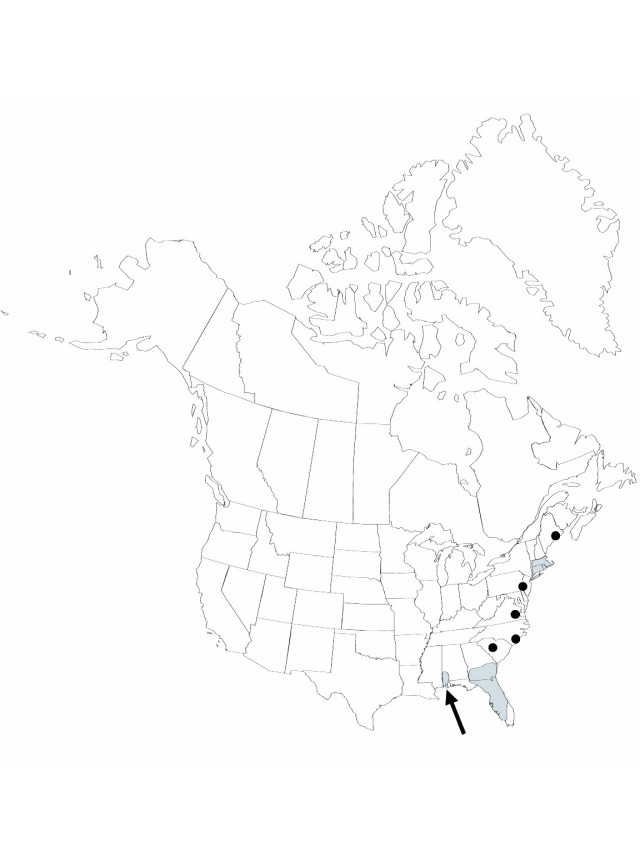Sagittaria filiformis
N. Amer. Sagittaria. 20, plate 15, figs. 5–8. 1894.
Herbs, perennial, to 170 cm, mostly of fresh waters, some plants stranded along shore; rhizomes absent; stolons present; corms present. Leaves submersed or floating, rarely emersed; submersed phyllodial, flattened, 30–250 × 0.1–1.5 cm; floating with petiole flattened, to 40 cm, blade linear-ovate to ovate, rarely sagittate, to 3.5 × 0.5 cm; emersed with petiole 5–10 cm, blade linear-ovate to ovate, rarely hastate to sagittate, to 4 × 0.5 cm; stranded plants usually with expanded leaf-blades. Inflorescences racemes, rarely panicles, of 4–10 whorls, floating to slightly emersed, 15–25 × 5–15 cm; peduncles 10–200 cm; bracts connate more than ¼ total length, lanceolate, 110 mm, delicate, not papillose; fruiting pedicels spreading to recurved, cylindric, 1.5–4.5 cm. Flowers to 3 cm diam.; sepals spreading in staminate, erect in pistillate, enclosing flower or fruiting head; filaments dilated, equaling anthers, glabrous; pistillate pedicellate, without ring of sterile stamens. Fruiting heads 0.7–1 cm diam.; achenes obovoid, abaxially keeled, 5 × 2.5 mm, beaked; faces not tuberculate, wings 0–3, entire, glands 0–1; beak lateral, erect, 1 mm. 2n = 22.
Phenology: Flowering summer–fall.
Habitat: Shallow, swift waters or deep streams in northern portion of range, ponds, lakes, drainage canals, and swamps in southern portion of range
Elevation: 0–100 m
Distribution

Ala., Conn., Fla., Ga., Maine, Mass., N.J., N.Y., N.C., Pa., R.I., S.C., Va.
Discussion
Selected References
None.